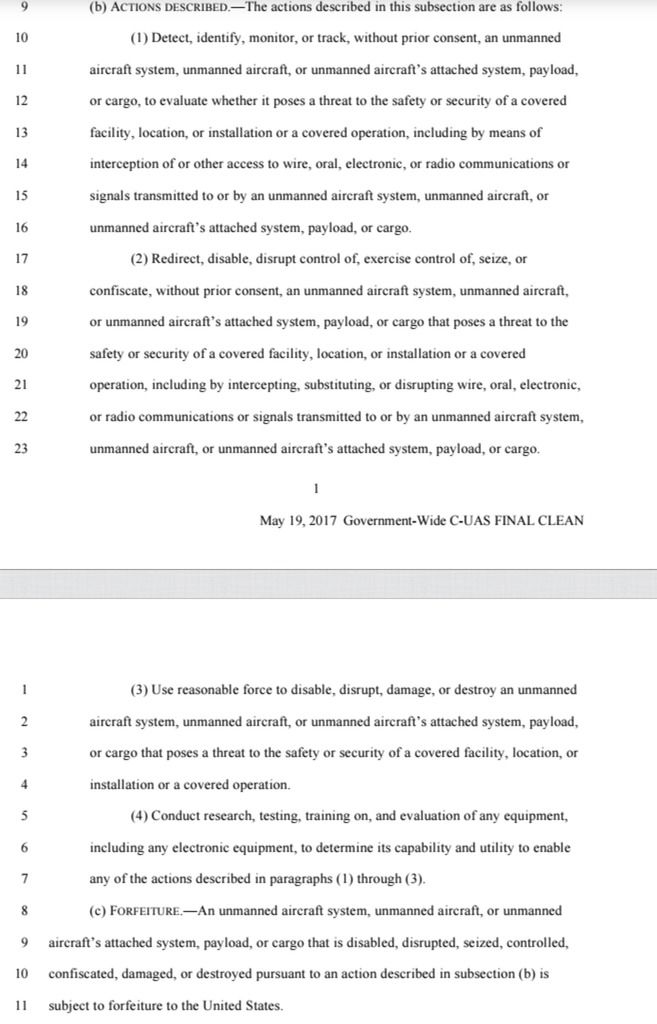It actually does. Directly from the article and I was coming here to post this. I am going to post a large part of it that people probably won't read but I am begging if there are any lawyers here, whether you agree or disagree with me, please speak up. My brother and a couple other family member are lawyers and I've already had this discussion with them. My brother is head council at Fortress Hedge Fund (meaning he makes the final green light on sometimes multi-billion $ deals and they are mandated to do what he said. He was also offered a job in the Trump administration which he turned down, thank God. He once worked for the SEC right out of law school so he has government ties) I am not bragging about my brother, as proud of him as I am, I am just saying that my thoughts on this are backed up after speaking with him. Doesn't make it right one way or the other as even if you understand the legal aspect of it, you can still agree or not agree with it. This is obviously subjective stuff we are discussing here.
I wanted to post this part of the 10 page document which is the meat of it. This is the problem. Things need to be defined EXACTLY or the 4th amendment might as well not even exist. The potential abuse of power for agents of any kind to be abused exist without any ambiguity. It doesn't even take a lawyer to know this. Any business man with a good understanding of contractual law knows that a SINGLE word can effectively render a contract useless and unenforceable so the verbiage and content of a contact or law must be so precise that there is no room for ambiguity and this is LOADED WITH it and that's my point. The document refers throughout about what they are and are not allowed to to. "they" being whatever agency is acting on the law (probably law enforcement but maybe a park ranger or even a rent-a-cop) and what is in their legal grounds, and the article refers to subset B and C of I think article 1 but no matter, it's the B and C part that is what is not at all defined and I'll go ahead and give the government my very lightly placed benefit of the doubt for it being the first printed draft (which means it went through probably 100s of drafts first).
Here is a picture of that article because it won't let me cut and paste from the article so I screen captured it but for reference on the rest of this post and maybe for the people that didn't read the article which is more important than the NYT which is full of bias. This is straight forward, go ahead and read and make up your mind. I am speaking to the crowd, not the poster I quoted.

Now go ask your favorite article but as it is stated here, it might as well say "we can do what we want, when we want for whatever reason we want". An officer can't pull you over because your car looks fast. He can't pull you over because you are not breaking any laws and if you were to red the laws as it pertains to what they are and aren't allowed to do which is protected legislation by the way we make laws in this country which is though lobbying, you would be able to read right through this and though it is covered and to the uninitiated, quite clearly that it is for the protection of the public so I can understand why some people here are defending it.
I ask you, I beg you, to actually look at it. It is not specific in any nature. It should be. It gives the right for agency to be able to confiscate, destroy, or otherwise molest your right to fly your UAS responsibly even with the knowledge on how to do it properly (getting air tower permission which by the way does matter to whomever says the tower cant override the FAA). It's true that NOBODY, including the state can override regulations that were set in place by the FAA. it is one of the few areas where this is true. The states can only reach FARTHER in their decisions as it pertains to their airspace (and only for private aircrafts) and cannot go backwards. In other words, if the FAA says "you cannot fly here no matter what", the state cannot enact a law saying otherwise. As many have seen (like the municipally of NYC), they can enact any law saying "you cannot fly here". That they can do. But for all intents and purposes, the air is solely covered by the FAA and this bill as it stands right now anyway, is so ambiguous that any time you have ever had to invoke your rights to fly, and I have several times, and 99.9% of the time successfully because I haven't flow illegally in years, you will not have a leg to stand on. They an tell you to bring it down, shoot it down, confiscate it.
So I say again. I am all for regulation. I study the rules and laws. I've learned how to read sectionals. I know how to speak to the tower. I still double check my radars and various other aerial maps that can give me information in case there is any problem and I NEVER fly over 400 feet because in general, unless you are at the beach where there are a 100 thins flying below where they are allowed, like a advert plane or a para-sailer. Did you know that it is a violation of FAA regulation pretty much every single time a para-sailer gets sent up? It's also a flying body with zero regulation but because there is no threat, they don't care
The threat of a para-sailer colliding with a heli which are always flying below their allowed amount (which is almost always over 400 feet), the dangers are coming from other places which is why we must be vigilant but also understand that we are under siege by this legislation as it pertains to our freedom of flight.
We do and should have access to the air with reasonable expectation of responsibility. I am not even against licensing and registration. BUT the problem is DEFINE the rules.
X amount of feet away from a military base is ALWAYS illegal or section b of that piece of crap bill would be what I am saying. It needs rules, not "to protect the world we can do anything we want" which is basically what that says. There are literally zero specifics. That is the definition of a bad contract and a law is a forced contract by the government to it's citizens which are again, necessary but the contract needs to be good and as any business man will tell you, whoever writes the contract will use with fancy verbiage the ability to win. You should concerned and act because of the lack of a lobby that cares about UASs. Who does? DJI, that's who. A company that is based in China. And while China has been making strides to a more democratic, branched out form of government they are 1000s of years behind us in that regard. Some would say it is a more efficient method when there isn't so many checks and balances but they do have like 3 or 4 branches but I am no expert on Chinese government but I do know they have basically zero IP law and I know that they are relying on lawyers who just want to get paid to do whatever minor lobbying they are. It is up to us as the public to TRY and make a difference for the things we want and we don't want this. We want DEFINED EXACT regulation. Tell me where to get a license and I'll sign up. Tell me to put my registration back on my birds and I will, tell me when, where and why EXACTLY I can or can't fly and I will comply but that is not what this bill says. It uses vague words and even at the beginning to throw of the smell of the manure, they put the paraphrased "with respect to liberty and the right of the..." blah blah which is just there for show and has no legal baring on anything.
If you don't care about that legislation, you are one of 3 things. 1) in or not in agreement with it but understand how it can be applied 2) in agreement with it because you don't understand it or 3) don't understand it.
I don't know where YOU, whoever you are fall in to that but it's pretty much the case and I fall into what I believe is number 1 with non-agreement.
So to clarify what I didn't think needed clarification in the OP, I am not against regulation and am in fact, for it for the protection of all things, the hobby, the people, the air, etc., but with limitations. LIMIT anything the government can do by my thoughts.









